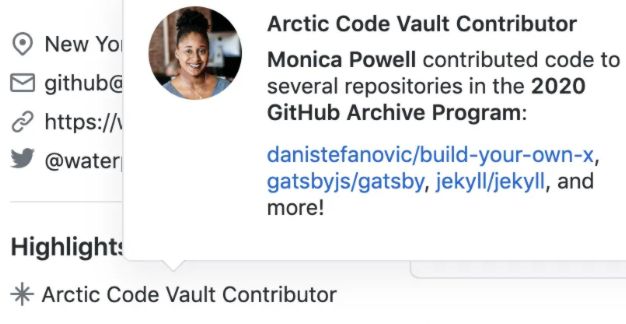| Open Source Software Buried For The Long Term |
| Written by Sue Gee | |||
| Sunday, 19 July 2020 | |||
|
GitHub has announced that it has completed its mission to preserve open source software for future generations by storing its code in an archival facility 250 meters deep in the permafrost of an Arctic mountain, built to last a thousand years.
The location for GitHub very-long term repository is on Svalbard, an archipelago roughly 600 miles (1000 km) north of the European mainland and closer to the North Pole than the Arctic Circle. Specifically it is in a decommissioned coal mine set in the mountain, occupying a chamber deep inside hundreds of meters of permafrost. As well as introducing the location, this video, shown at last year's GitHub Universe conference and included in our previous report on the initiative, GitHub's Arctic Archive, records the initial deposit consisting of six thousand of the most popular GitHub repos, including Android and Linux, made last year by GitHub.
The idea back then was for GitHub to return this spring with the remainder - comprising the code of all the active public repositories on GitHub on February 2, 2020. However, due to travel restrictions imposed by COVID-19 GitHub had to entrust the task of making the bulk deposit to its local partners, who carried it out on July 8, 2020. The video also explains the technique used to future-proof the 21TB of repository data. It has been stored on silver halide film, encoded on frames with 8.8 million pixels each. This reduced it to 186 reels of piqlFilm (digital photosensitive archival film). In the blog post announcing the arrival of the open source code to the GitHub Arctic Code Vault, Julia Metcalf also reported: Millions of developers around the world contributed to the open source software now stored in the Arctic Code Vault. To recognize and celebrate these contributions, we designed the Arctic Code Vault Badge, which is shown in the highlights section of a developer’s profile on GitHub. Hover and you can discover some of the repositories an individual contributed to. The Arctic Code Vault is just part of the GitHub Archive Program in which GitHub is partnering with the Long Now Foundation, the Internet Archive, the Software Heritage Foundation, Arctic World Archive, Microsoft Research, the Bodleian Library, and Stanford Libraries to ensure the long-term preservation of the world's open source software to; protect this priceless knowledge by storing multiple copies, on an ongoing basis, across various data formats and locations, including a very-long-term archive designed to last at least 1,000 years. Another long term strategy, being used by Microsoft’s Project Silica is to write code onto quartz glass platters using a femtosecond laser. It does make you speculate how Earth's inhabitants will react to discovering canisters of film in the third millennium. And the news the the Arctic is warming at twice the rate of the rest of the world due to human-induced climate change raises the fear that perhaps even Svalbard won't still be as safe and secure a cold store by the end of the 1,000 year term. More InformationRelated ArticlesTo be informed about new articles on I Programmer, sign up for our weekly newsletter, subscribe to the RSS feed and follow us on Twitter, Facebook or Linkedin.
Comments
or email your comment to: comments@i-programmer.info |
|||
| Last Updated ( Sunday, 19 July 2020 ) |





